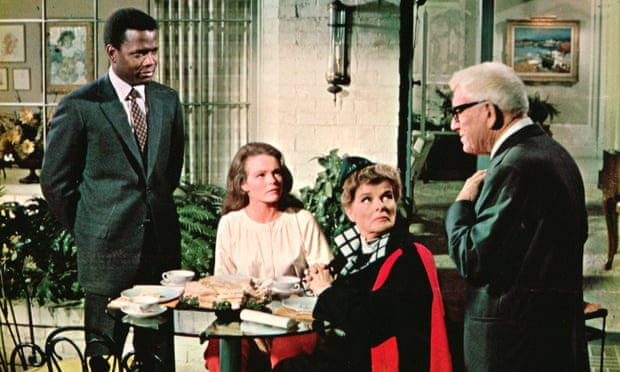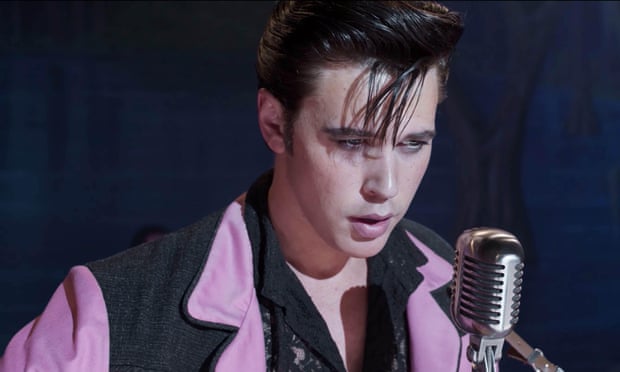yesSydney Poitier’s death in January was one of the year’s most disconcerting celebrity losses. Living luminaries of classical Hollywood cinema are few and far between, and Poitier was the key bridging figure between that era and the industry’s more progressive present. That sense of a severed connection to the past is driven home by sydney (Apple TV+), a new documentary made with his participation shortly before his passing. Directed by veteran Black film-maker Reginald Hudlin, it’s a warm, generous portrait, if not an especially penetrating one, serving best as a primer for younger audiences on Poitier’s trailblazing status as a leading man in white-ruled Hollywood.
Talking heads such as Oprah Winfrey attested to his famed dignity and diplomacy in an uneasy symbolic position, as well as the blazing onscreen charisma that drew conservative audiences to then adventurous films about American racial inequality. sydney is unsurprisingly more circumspect when it comes to accommodating Poitier’s critics, ironing out certain nuances in his relationship to the civil rights movement and gesturing to James Baldwin’s thoughts on Poitier as a problematically sanctified figure without including the writer’s actual arguments. El Poitier’s own presence is the film’s strongest asset: his narrative of his impoverished upbringing in the Bahamas, and his first encounters with Jim Crow racism in America, is stirring and resonant, that marvelous voice reaching and teaching his audience for the last time.
Hudlin’s documentary will hopefully bring uninitiated viewers to Poitier’s fascinating filmography – beginning with an arresting appearance as a young county hospital doctor facing racial hatred in Joseph L Mankiewicz’s unusually political film noir no way out (Apple TV), in some ways a harder, braver film than the liberal-message movies Poitier made as a bigger star. Other notable early credits of his – including Edge of the City, something of value and even Otto Preminger’s Porgy and Bess – are frustratingly unavailable to legally stream, but you can see his livewire turn as a gifted, recalcitrant student in the influential classroom drama Blackboard Jungle (Amazon Prime).
Fully fledged stardom came with his rousing partnership with Tony Curtis in the prison-escape buddy drama The Defiant Ones (another title inexplicably absent from streaming services), a more muscular film, and role, than the one that eventually won him a history-making Oscar – the genial but toothless Lilies of the Field (Apple TV), which isn’t averse to “magical Negro” stereotyping in its tale of an itinerant worker helping a group of European nuns build a chapel.
Films that cast Poitier in predominantly Black-populated stories – such as Porgy and Bess and the moving social-realist family drama A Raisin in the Sun (Amazon Prime) – never fared as well for him. Poitier’s career tilted increasingly towards films in which he was a lone Black figure of integration and oppression, culminating in a 1967 trio of box-office hits. Pitting Poitier’s charm against the Waspy chill of Katharine Hepburn and Spencer Tracy, the interracial romance Guess Who’s Coming to Dinner (Google Play) is now the fustiest of these, with the London-set To Sir, With Love (Apple TV), which flipped Poitier’s Blackboard Jungle role by making him the teacher to unruly youths, equally naive and sentimental but rather more engaging. Terse and taut, with a tough foil for Poitier in Rod Steiger’s racist police chief, the Oscar-laden southern detective drama In the Heat of the Night (Apple TV) remains the best of them.

That year marked the peak of Poitier’s career, which slowed down in the post-civil rights era. Bar a reprise of his In the Heat of the Night role in the lesser They Call Me Mister Tibbs! (Google Play), the 1970s were short on signature roles, but Poitier segued into directing, often displaying a lightness and humor in his own films that Hollywood hadn’t really accommodated. The Rollicking Black Western Buck and the Preacher (Amazon Prime), the gentle romantic melodrama A Warm December (Amazon Prime) and the frenzied farce stir crazy (Chili) all hold up, though the unwatchable Bill Cosby fantasy Ghost Dad (Apple TV, if you dare) was a career low. And even as Poitier became only the most occasional actor from the 1980s on, effortless star turns in films such as the spry hacker caper sneakers (Amazon) were reminders of what Hollywood had and, for all the veneration, perhaps never fully appreciated.
Also new on streaming and DVD
Elvis
(Warner Bros)
Rarely has the inspiration-starved musical biopic genre turned up as ideal a match of maker and subject as Baz Luhrmann and Elvis Presley – two great, earnest showmen unafraid of capping excess or bad taste in pursuit of their audience. Thrilling, sometimes eye-searing and finally very moving, this study of celebrity life as constant, rolling montage swings and misses on occasion, but more often connects spectacularly, through Luhrmann’s glittering aesthetic and Austin Butler’s megawatt performance.

Athena
(Netflix)
Celebrated for propulsive, provocative music videos for MIA and Justice, Romain Gavras – son of Greek auteur Costa-Gavras – hadn’t yet made a feature with equivalent fizz and excitement. That changes with this technically exhilarating, politically enraged action film about a Paris banlieue uprising against unconscionable police violence. Co-written by Les Miserable director Ladj Ly, it’s sort of a reverse shot of that film, its perspective led by victims rather than authorities, and with the film-making dialed up to 11: certain jaw-droppingly choreographed long takes here may be all-timers.
Nitram
(Picture house)
Justin Kurzel’s chilling, exacting anatomy of the 1996 Port Arthur massacre in Tasmania – the largest mass shooting in modern Australian history – takes a high risk by focusing on its perpetrator, probing the mental illness and domestic upheaval that led him to the event. It pays off: a character study that manages a tricky balance of amorality and compassion, it’s grounded by wrenching performances from Caleb Landry Jones as Bryant, and Judy Davis and Anthony LaPaglia as his increasingly desperate parents of him.
www.theguardian.com
George is Digismak’s reported cum editor with 13 years of experience in Journalism